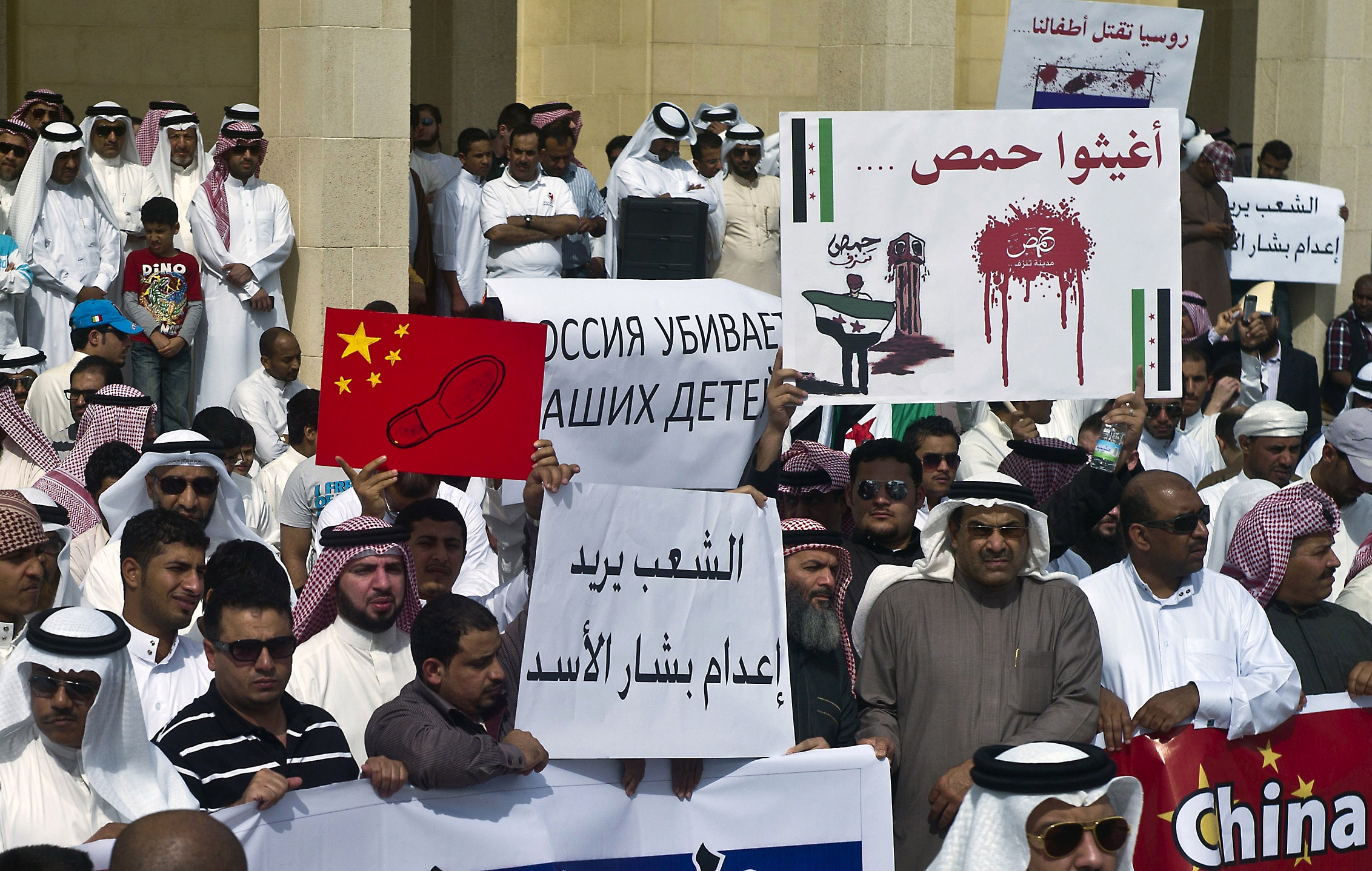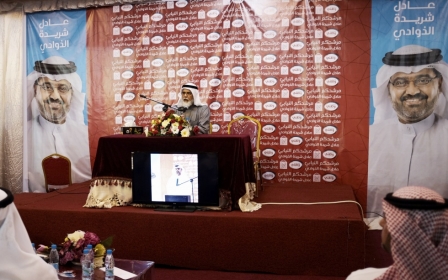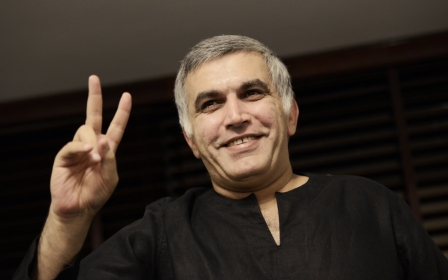Sunni Islamists could face uphill struggle in Bahrain elections

Bahraini society has for a longtime maintained Sunni-Shiite divisions. The majority of Bahrainis are Shiites and since the unrest sparked by anti-government protests in 2011, the country's minority Sunni community has been seen to remain united against a mutual enemy.
But a combination of international pressure and concerns about mounting sectarianism have led to cracks in the relationship between the government and the previously staunch Sunni Islamist establishment.
In anticipation of November’s parliamentary elections, Bahrain's electoral boundaries have been redrawn ostensibly to make the boundaries more “equal” in size.
Though the Shiite-backed opposition has already complained that redrawn constituencies are designed to undermine their support, some commentators argue that the new boundaries appear more like a deliberate effort to neuter the power of Sunni Islamist politicians.
Constituencies have been expanded in the strongholds of the Muslim Brotherhood-affiliated Al-Menbar Islamic Society and the salafist Al-Asalah Islamic Society, leaving so-called safe seats open to challenges from pro-government ‘independents.’
"We do not have confidence in any of the areas that our candidates are contesting, though we are trying our best," Al-Menbar president Ali Ahmed was quoted as saying in Gulf News Daily.
"Usually in every election in the past we worked with confidence, but this time it is tough - though we have a certain higher level of confidence in three areas, which we would not want to disclose," al-Menbar said.
The result seems to some to drive a covert but still consequential wedge between the government and its old allies.
“It's clear that that is the intention,” says Justin Gengler, senior researcher at the Social and Economic Survey Research Institute of Qatar University. “It's no secret that Bahrain is under pressure from Saudi Arabia and others to limit the way those Islamist groups are able to operate and limit their influence upon politics.”
Gengler told Middle East Eye that the growing unease among Gulf rulers about the strength of Sunni Islamist groups – particularly those with a stated democratic agenda like the Brotherhood – was a factor pushing Bahrain to distance itself from erstwhile allies.
“It was useful a few years ago to have these groups mobilised simply because they were able to fight the state's battles for it in the streets,” he said.
“Today it's less useful for the government, not only in a domestic context, but in a regional and international context, which is really more sceptical of Sunni activism now than it is of Shiite activism in the region."
No choice on the Brotherhood
During the Arab uprisings of 2011, members of al-Menbar rallied to condemn the mostly Shiite protestors, often using vitriolic and sectarian language.
Al-Menbar MP Sheikh Mohammed Khalid took to Twitter in January 2012 to dismiss the protestors as “traitors” and as “agents of Iran” and called for violent retribution.
“If you see a traitor crossing the road, you must run them over and keep going because you are in a country where the law allows you to strike and crush them,” Khalid tweeted.
Though the Muslim Brotherhood's activities have been heavily curbed by other Gulf nations and classified as a “terrorist” group by Saudi Arabia and the UAE, the Bahraini government has been hesitant to join in the clampdown.
Bahrain's foreign minister Sheikh Khalid bin Ahmed Al Khalifa sparked controversy in March after he announced at a press conference in Pakistan that al-Menbar would not be classified as a terrorist group in Bahrain, leading to accusations that he was breaking with his Gulf allies on the issue.
Shortly after, he appeared to clarify his remarks, claiming that legislation against the group would depend on the national context of each country.
“I never said or mentioned that the Muslim Brotherhood was not a terrorist group.”
“Each country, while upholding the common stance vis-à-vis the Muslim Brotherhood, deals with its members according to their acts towards the state. This is what I said and meant at the media conference in Islamabad. It is very clear and it does not lend itself to any interpretation,” Sheikh Khalid said on his Twitter account.
Bahrain’s dependency on Saudi Arabia, particularly in terms of oil imports and military protection, makes it very difficult for the country to step out of line over the issue of the Brotherhood.
“Bahrain doesn’t really have a choice on the Brotherhood,” said Toby Matthiesen, a research fellow at Cambridge University.
“Maybe they wouldn’t mind keeping the alliance for domestic purposes, but basically, internationally and regionally it’s just not possible, they have no choice. Whatever they’re doing they have to do it anyway.”
Matthiesen said that an Egypt-style clampdown, involving mass arrests and killings, was unlikely, and said a suppression would probably involve a gradual phasing out of the group from public platforms.
Jane Kinninmont, a senior research fellow at Chatham House, highlighted a move against Human Rights Minister Salah bin Ali Mohammed, a member of Al-Menbar’s parent organisation Al-Eslah and one of only two Sunni Islamists in the government.
“The human rights minister is going to lose his job after the election and his ministry is going to be dissolved,” she told MEE. "That’s from official sources, not from opposition sources, so I think it’s quite credible.”
She added that such a move "might have nothing to do with Islamism" pointing out that the performance of the ministry had been "pretty poor.”
“The government will play this quite carefully – both the government and the Islamist movements will be quite cautious," she said. "The government will not want to alienate the Muslim Brotherhood or the Salafists, especially as those groups have been quite valuable to them in fighting back the opposition uprising."
“But at the same time, the Muslim Brotherhood in particular will want to keep its head down and not take any risky or confrontation steps at a time when it knows neighbouring countries are not on its side.”
Maintaining a low profile
Perhaps anticipating a move against the group, senior figures in al-Menbar have made moves to distance themselves from the Brotherhood.
"All eyes of the voters are on us as they say we are the Muslim Brotherhood, which is not right," said al-Menbar president Ali Ahmed on Tuesday.
"It is the ideology that we follow, but we do not have the organisation in Bahrain - neither do we support it,” he said.
"Unfortunately, with the negative publicity the organisation had gained in Bahrain and in the region, there is a need for us to be maintaining a low profile."
Many also fear that the sectarian rhetoric employed by the government against their Shiite opponents may have created something of a Frankenstein’s monster.
The Salafist al-Asalah Islamic Society has frequently been accused of support militant groups fighting in Syria and endorsing their actions with anti-Shiite sectarian proclamations.
A report on a Tunisian television show in early 2014 featured an interview with a Bahraini fighter in Syria who claimed to have received direct funding from two al-Asalah MPs, including former society head Sheikh Adil al-Ma’wda,
Another delegation of al-Asalah MPs headed into Syria in August 2012 to provide “donations sent by the Bahrainis” to the Islamist Suqour al-Sham brigade, later of the Islamic Front.
Bahrain’s role in the US-led coalition fighting Islamist groups in Syria and Iraq, only serves to further highlight rifts emerging between the Bahraini government and some members of the Sunni community.
“In 2011, 2012, these groups were important and even essential for the mass counter-mobilisation that they helped to organise,” said Gengler. “But given how quickly and far things got out of hand in terms of the sectarian rhetoric and sectarian tensions, the government clearly pushed people too far.”
“That's why you have hundreds of Bahrainis fighting with the Islamic State in Syria and Iraq, essentially doing what the government asked them which is to fight the Shiite and Iranian influence in the region.
“This is a real threat and a real challenge,” said Matthiesen. “But at the same time, much like in Saudi Arabia, the rhetoric and the social media and the state media which perpetuates anti-Shiite and anti-Iran rhetoric – that’s just the kind of thing IS relies upon. So in a way it’s a perfect breeding ground for IS recruits. They [the government] certainly don’t want people to go and fight in Syria, but their rhetoric feeds into this recruitment drive.”
Ultimately, though, the electoral district restructuring could present no more than slap on the wrist for Sunni groups in Bahrain.
The weakness of Bahrain's lower house – with the upper half composed entirely of politicians appointed by the King and commanding equal power – means the fallout could be ultimately negligible.
“I don’t think the Bahraini authorities themselves are worried about those groups,” said Kinninmont.
“I think some of them that are more business-minded like the crown prince would prefer to see more independents from Sunni and Shiite backgrounds that represent the business community and have more of a liberal outlook.”
Any move to undermine Sunni Islamist groups in Bahrain would depend on outside forces.
“The UAE and Saudi Arabia are Bahrain’s closest allies,” said Kinninmont. “They provide the country with a lot of economic support and it was their troops that made up the majority of the GCC force that went in in 2011 [to put down protests]. Those countries have a lot of influence in Bahrain and so the question is: do they think the Sunni Islamists have too much power in Bahrain? Or do they think it’s a special case?”
“Traditionally people in the UAE would say ‘things are different in Bahrain.’ I’m not sure if that’s still the case.”
Middle East Eye propose une couverture et une analyse indépendantes et incomparables du Moyen-Orient, de l’Afrique du Nord et d’autres régions du monde. Pour en savoir plus sur la reprise de ce contenu et les frais qui s’appliquent, veuillez remplir ce formulaire [en anglais]. Pour en savoir plus sur MEE, cliquez ici [en anglais].



